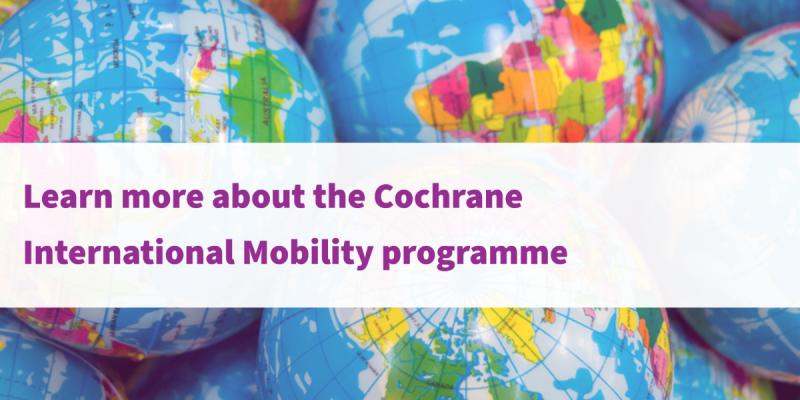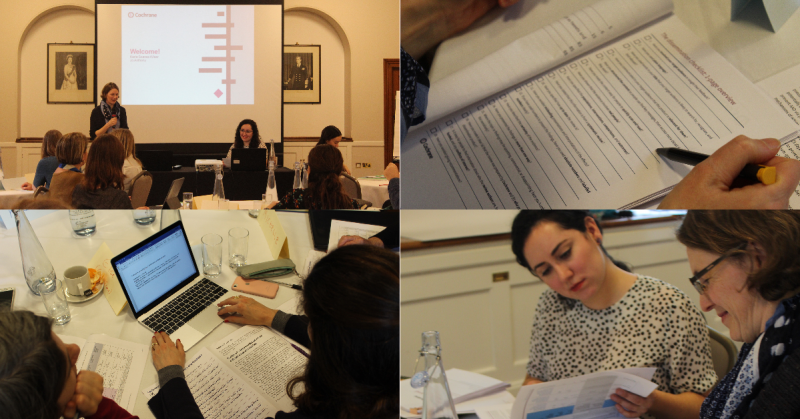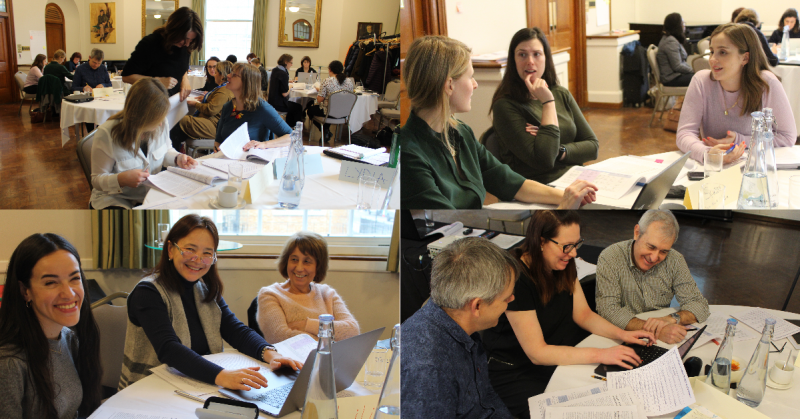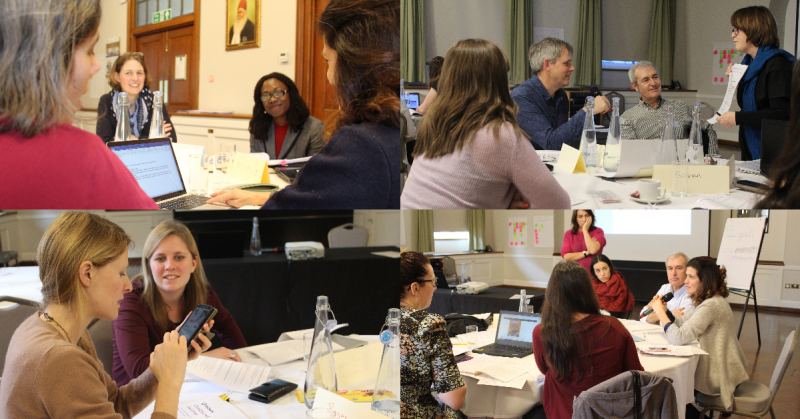In 2017, Cochrane Sweden initiated the Cochrane International Mobility Programme to promote research projects and training periods across the Cochrane network. Modelled on the European student exchange program, Erasmus, the scheme currently on trial is aimed at giving people interested in contributing to Cochrane, the opportunity to learn from Cochrane members in different parts of the world. The scheme is the idea of Matteo Bruschettini, Centre Director of Cochrane Sweden. He tells us more about this in this short interview.
Tell us about yourself
I’m a neonatologist working at Lund University, where I am an Associate Professor of pediatrics. I first learned about systematic reviews in 2010-11, when I attended a master’s course at Instituto Mario Negri in Milan. Soon afterwards, I started to prepare my first Cochrane review, mainly in neonatology. Since its launch in 2017, I have worked as Cochrane Sweden’s director.
Can you tell us about the Cochrane International Mobility programme (CIM)?
It is an initiative which Cochrane Sweden launched at the end of 2017 to promote research projects and training periods at Cochrane Centres in other countries. It is a kind of Cochrane Erasmus program and is not limited to Europe only. The programme is for everyone engaged in health research. Though the original aim was for the program to be for students, anyone with an interest in Cochrane and our work is welcome to participate in the program.
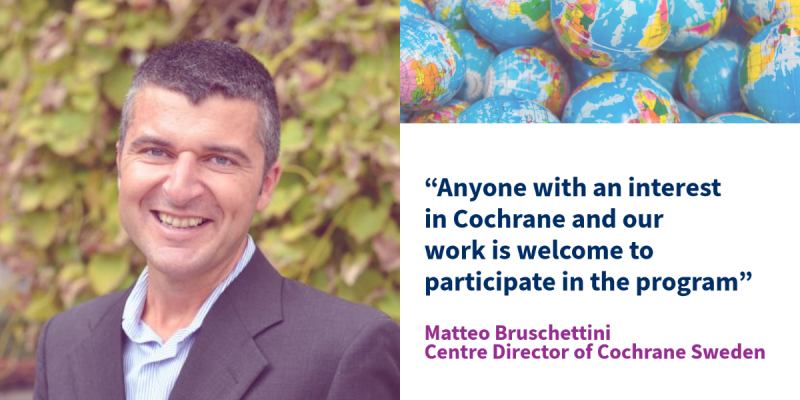
How did it come about?
Well, the idea came to me as I wanted to develop research projects, enrich the training of medical students and to promote international relationships between Cochrane units, in line with the Cochrane principles. So, we figured out a kind of Cochrane-Erasmus initiative. A few months after the launch of Cochrane Sweden (May 2017), we explored the possibility of offering high-quality training to the medical students coming to our Centre for a 20-week research period during their last year at medical school. The first experience involved Petter who spent 4 weeks in February 2018 at Cochrane Austria. This Centre was involved because of our ongoing collaborations and because of language needs, (Petter is fluent in German). It worked very well; Petter has published two systematic reviews (one with Cochrane Austria and one with Cochrane Sweden), became co-author in an ongoing Cochrane review, introduced other medical students to Cochrane, and attended the 2018 Colloquium contributing to a presentation on how to engage medical students.
What has happened so far?
In September 2018, a colleague of Petter; Kevin, contacted me and enquired about participating in a similar program. Kevin has spent three weeks at Cochrane Netherlands and in collaboration with them, we, with Kevin, are currently completing a systematic review. In early 2019, another student called Sandra had her 20-week period at Cochrane Sweden. She has spent four weeks in Denmark working with the Cochrane Anaesthesia, Critical and Emergency Care Review Group, resulting in Sandra along with others producing a review, which has just published.
In March 2019, Chiara, a physician, moved from Italy to Cochrane Sweden, where she spent 3 months training and conducted two reviews with us, including a Cochrane review (submitted in 2019). During the summer 2019, Franciszek Borys, from Cochrane Poland, has been involved in a research project on harms reporting in Cochrane reviews, in collaboration with the Director of Cochrane Sustainable Health Care, who is also based at Lund University Hospital, like Cochrane Sweden. In September 2019, Astrid contacted our Centre because she wanted to prepare a systematic review for her master thesis. After a four-week training period at Cochrane Netherlands, she has now completed a review of diagnostic studies (to be submitted). Currently there are two “CIM people” at our Centre: Mari, a physician and PhD student from Cochrane Japan; Israel, a physician from Cochrane Brazil. All these eight students and medical doctors are involved in projects in neonatology, which is my main research area. However, we are open to different topics as well.
Have these achievements been presented within the international Cochrane community?
Absolutely! Dina, Communication Consultant at Cochrane Sweden, presented a poster on CIM at the virtual Cochrane Colloquium 2019, in collaboration with 19 Cochrane groups. There are also other Cochrane Centre’s communicating about CIM and we have started profiles on Cochrane.org on our participants.
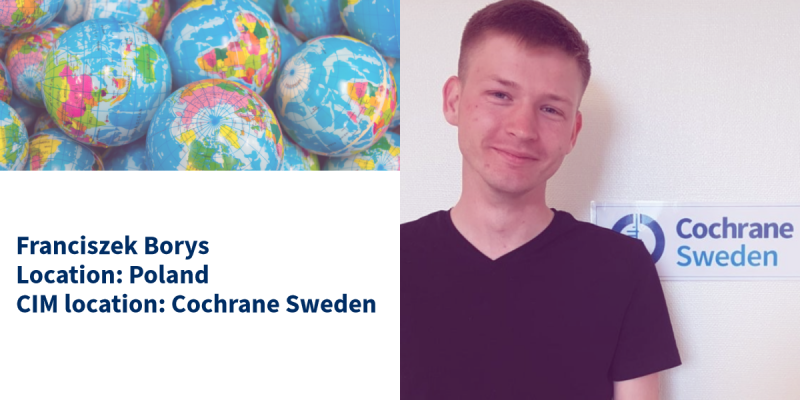
View Franciszek's CIM Profile
Our aim is to share our initiative and experience with others in Cochrane to inspire them to consider doing something similar. We would like to foster new partnerships with others in Cochrane. So, my ‘take-home message’ from this interview would be for Cochrane groups across the world to consider joining us in offering a placement. Do feel free to get in touch with me if you’d like to know more about CIM and our experience with the programme. You can also read more about researchers who have trained with us at our Centre.
What are you hoping might happen next?
At Cochrane Sweden we are proud of the enthusiastic feedback we have received so far from the students. Moreover, CIM also supports staff from different Cochrane centres in building relationships and collaborating on research. In March 2020, Simon, a Swedish junior researcher is heading to Cochrane South Africa for a month, then back to our Centre to complete his training. We are planning to build joint projects with steering committee of Cochrane Early Career Professionals, chaired by Robin Vernooij, and hopefully to expand and enrich CIM activities.
Furthermore, we’re delighted to have started further conversations with Cochrane Croatia, Cochrane Australia, Cochrane Norway and Cochrane Effective Practice and Organisation of Care (EPOC) Group.
We just find it important to share this knowledge with others in Cochrane to create awareness about this initiative and share our experiences also.
How can people interested in this program fund an exchange?
So far, no funding has been allocated to support the program. All Cochrane groups have provided training and supervision for free. Swedish students received a small travel grant from Lund University; the Italian student will benefit from an Erasmus Plus grant (to cover a small part of the costs). Cochrane Croatia may provide accommodation for free. We are delighted that CIM has successfully spread across all continents, in line with our organization, which is a global collaboration with researchers from around the world. We at Cochrane Sweden do not have the resources to undertake an exchange program for all of Cochrane and it would be great if this initiative might grow in to an established Cochrane program sometime in the near future.
Who can get involved?
So far, nothing is set in stone and we tailor each program. Opportunities to join a CIM programme are listed on Cochrane Training website, where a wide range of programmes are listed. CIM is for everyone, all ages and all backgrounds.
How can people get in touch with you?
Any staff member at Cochrane Sweden can be easily contacted here.
